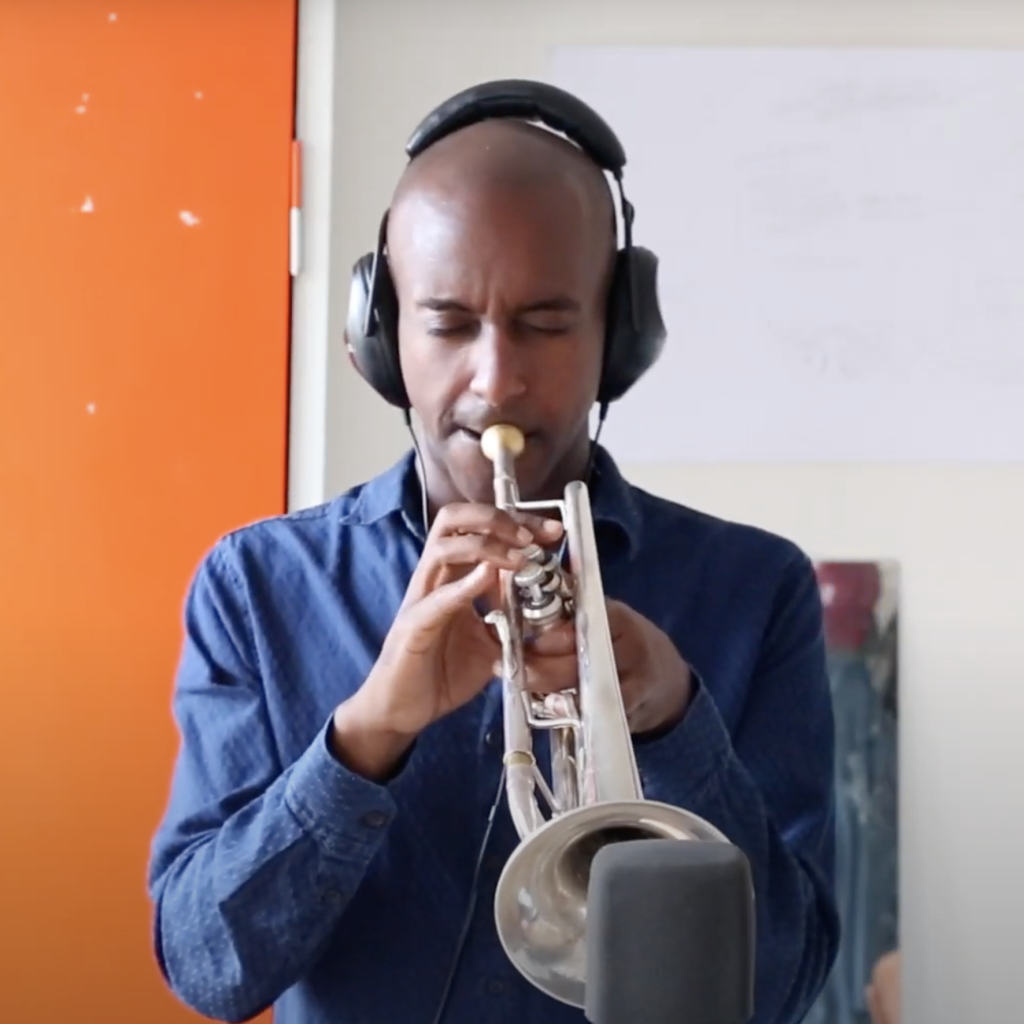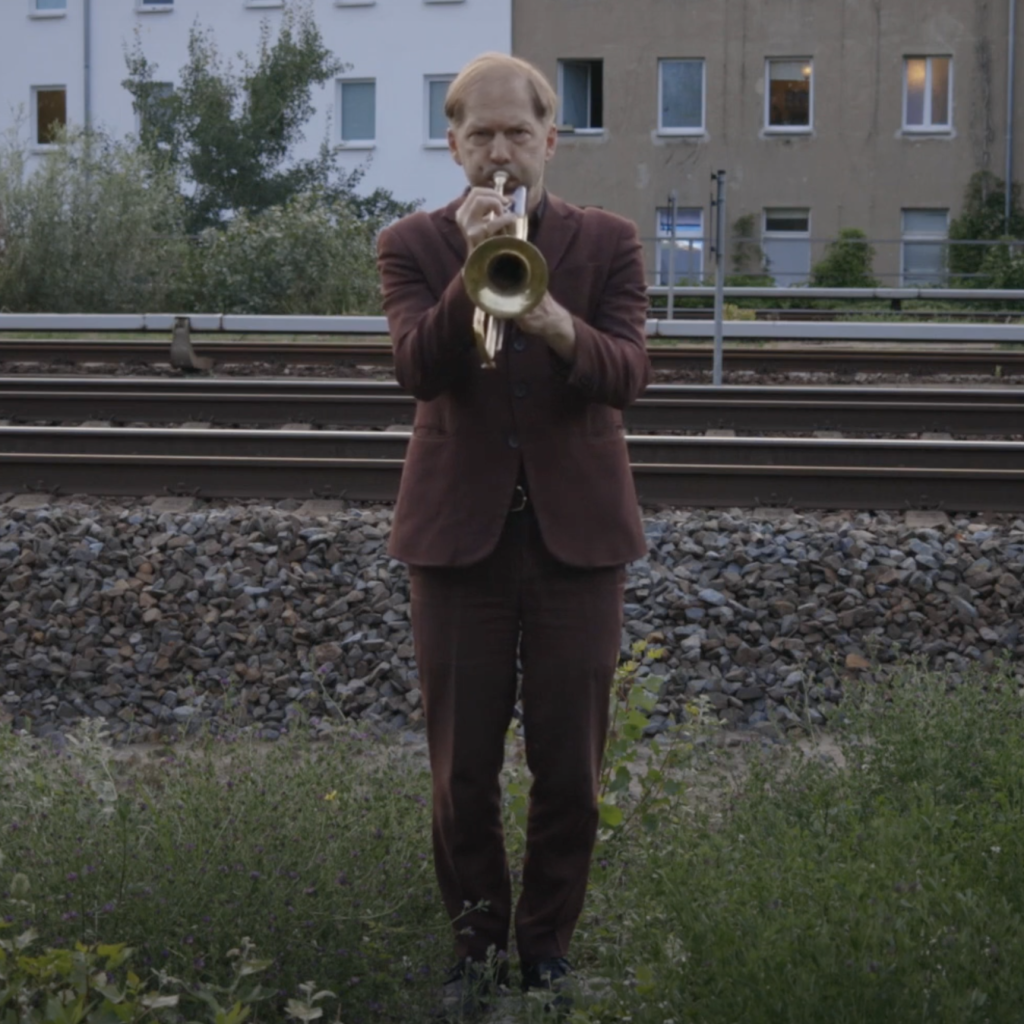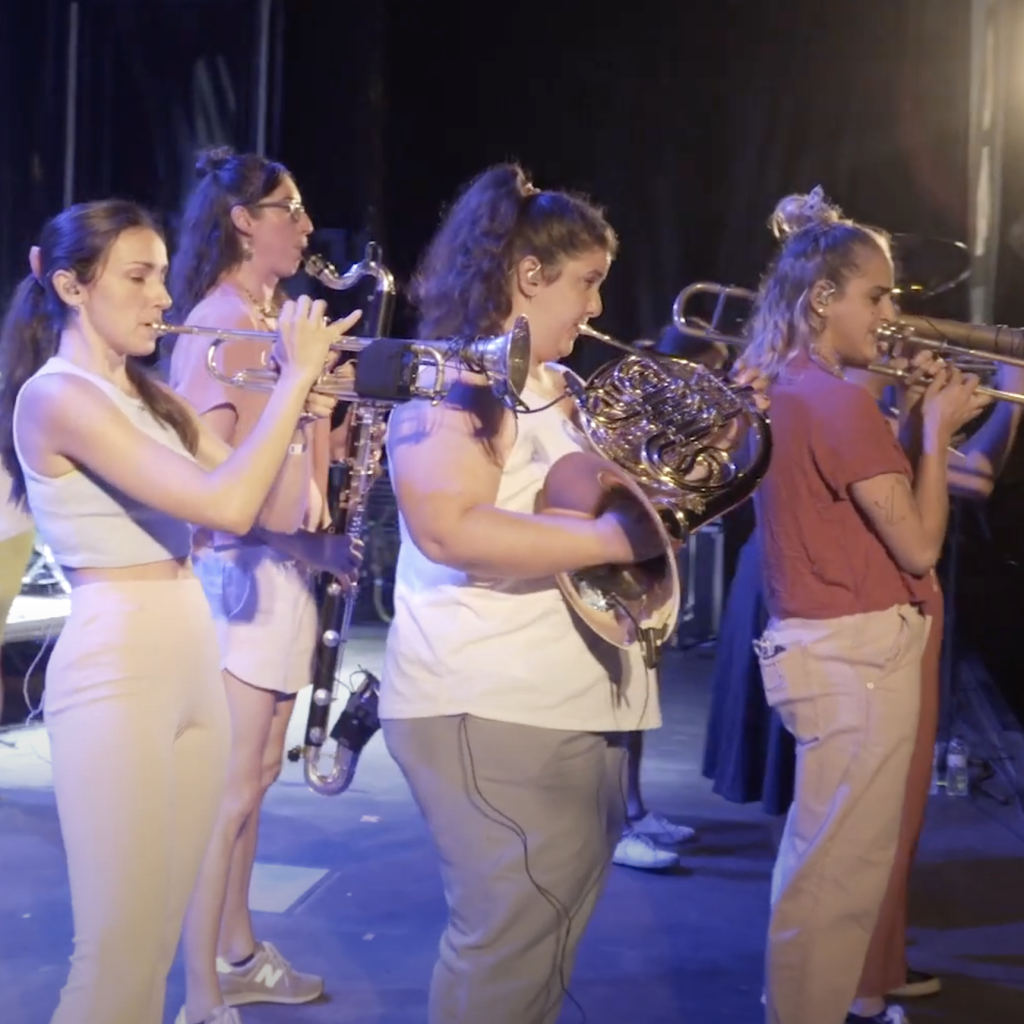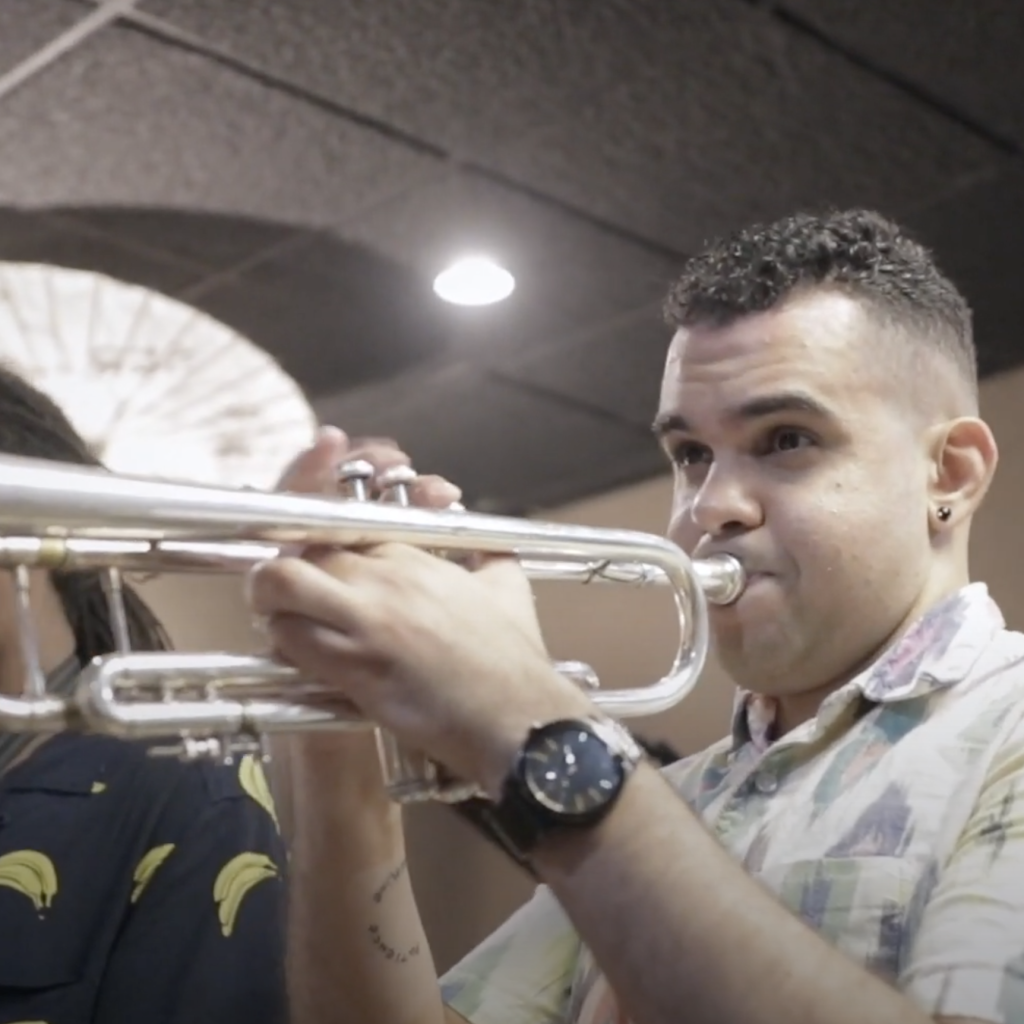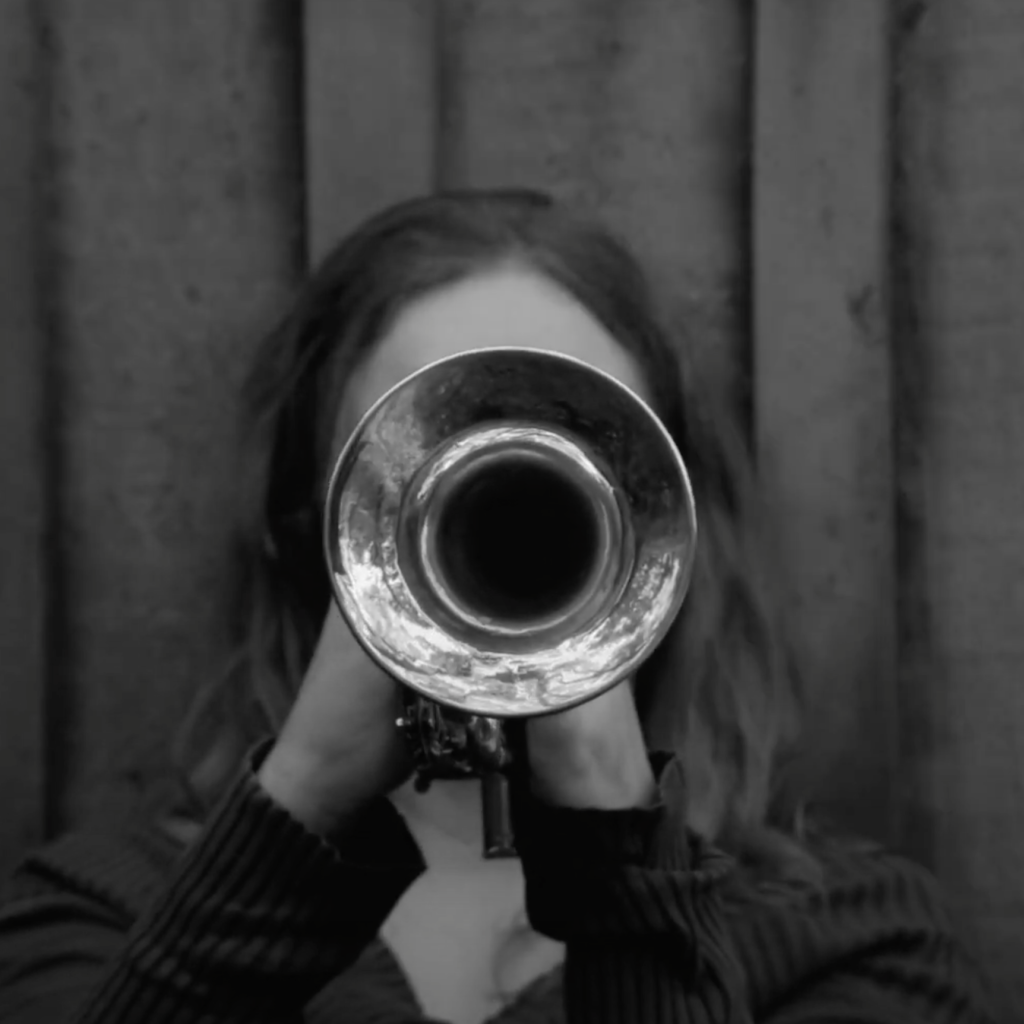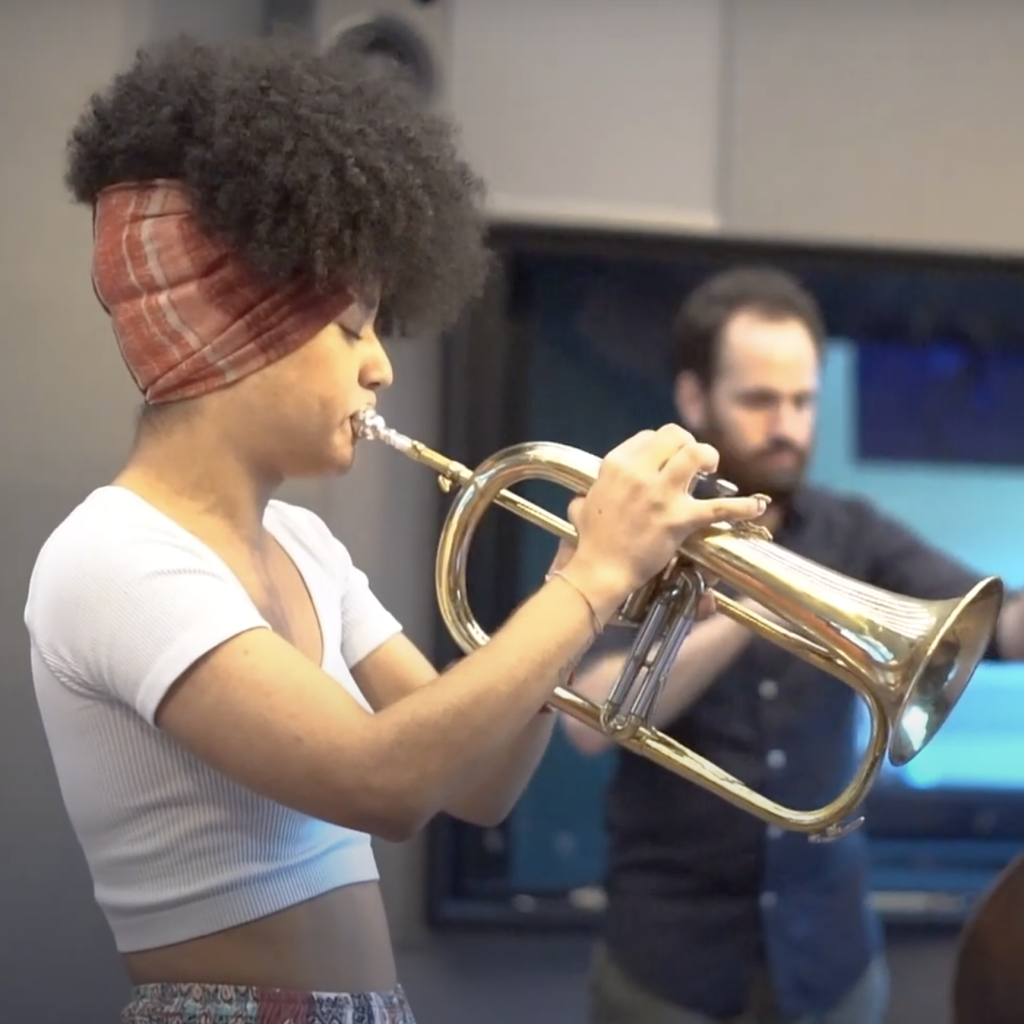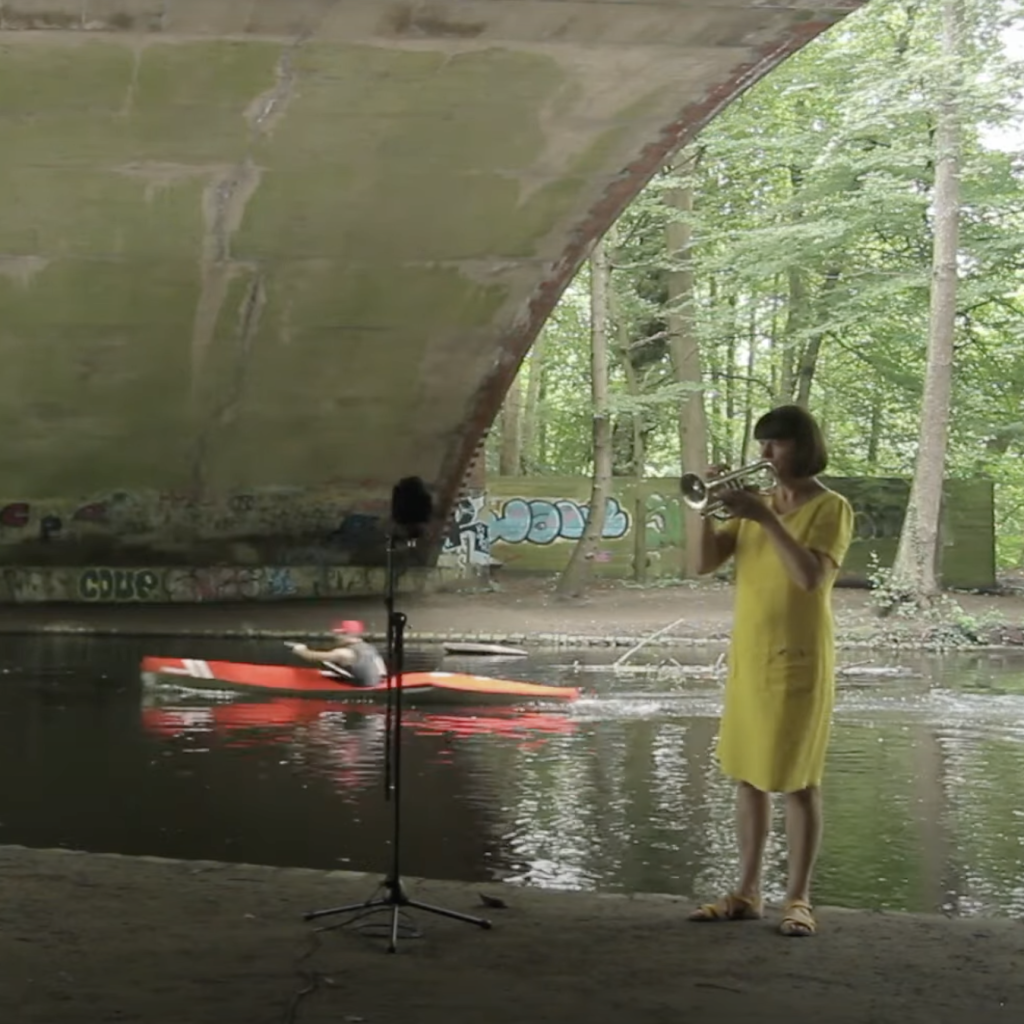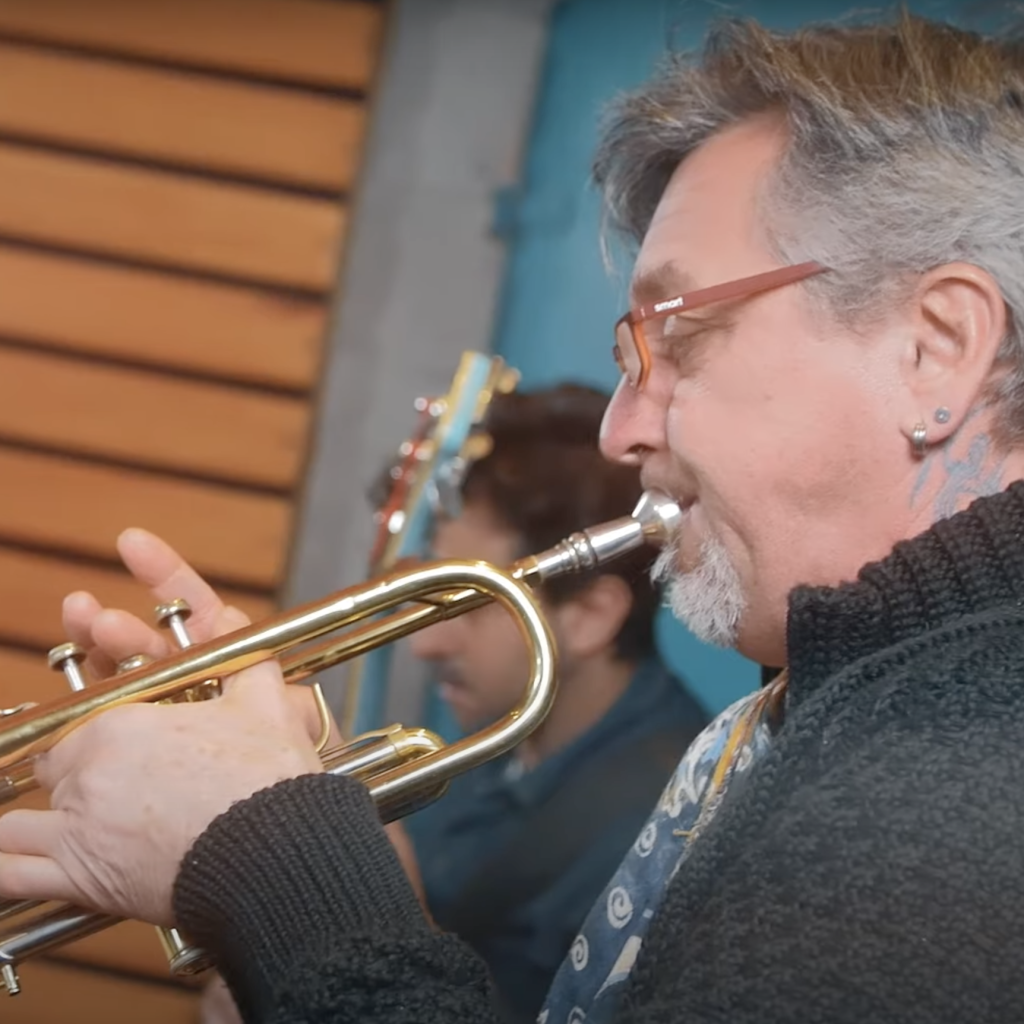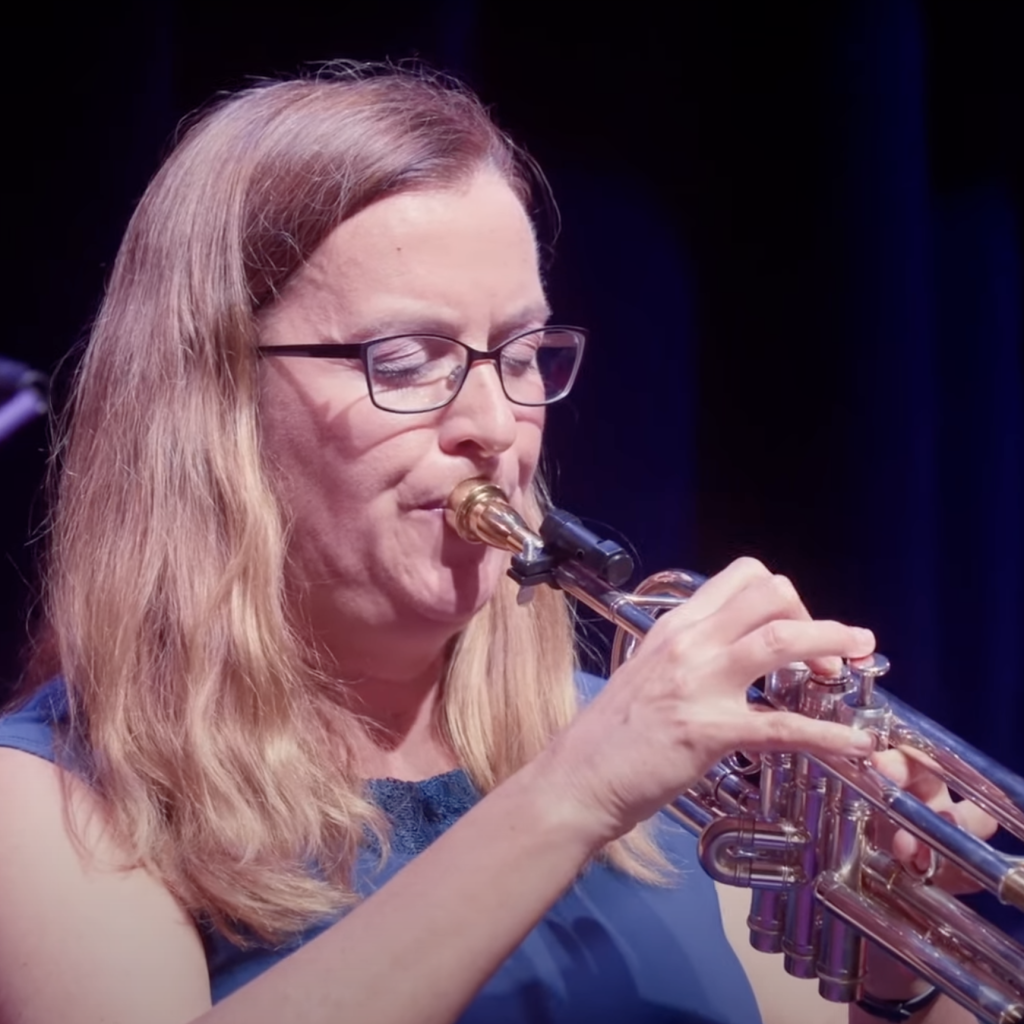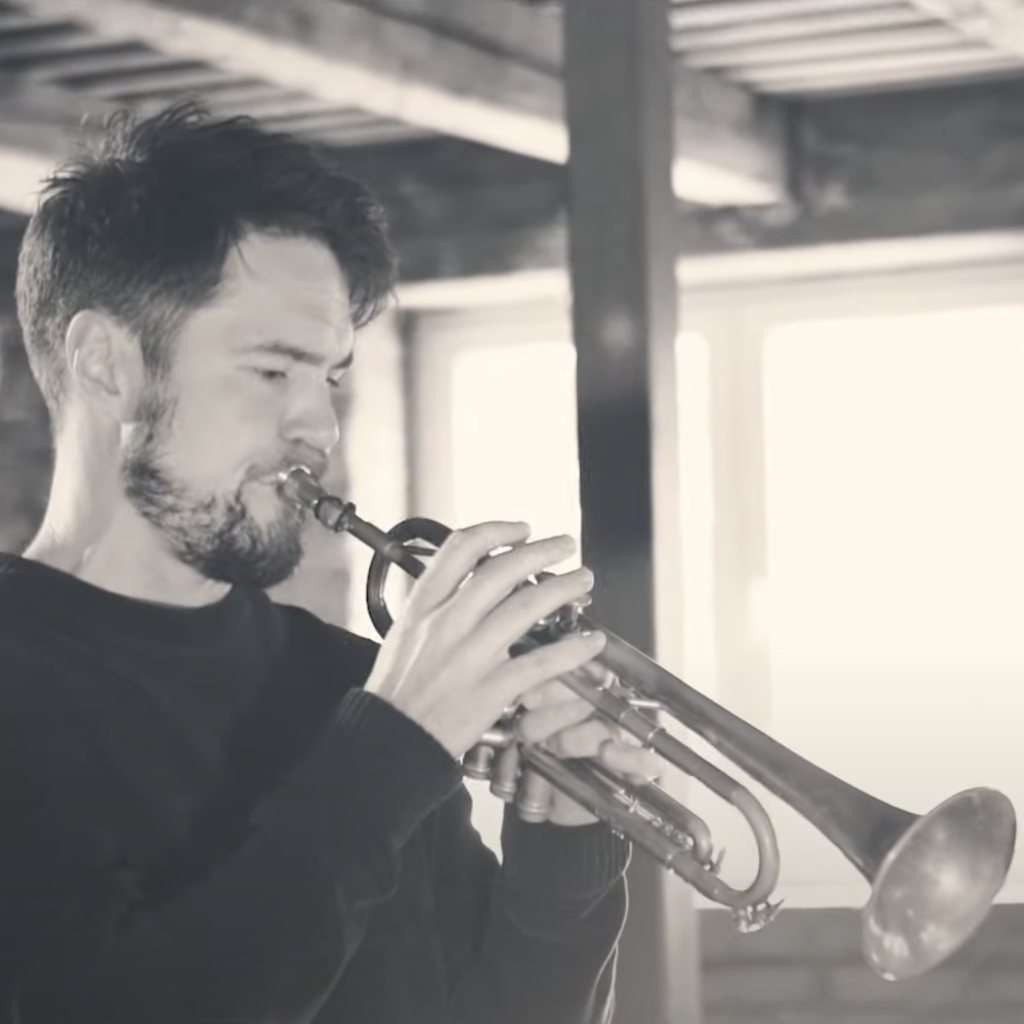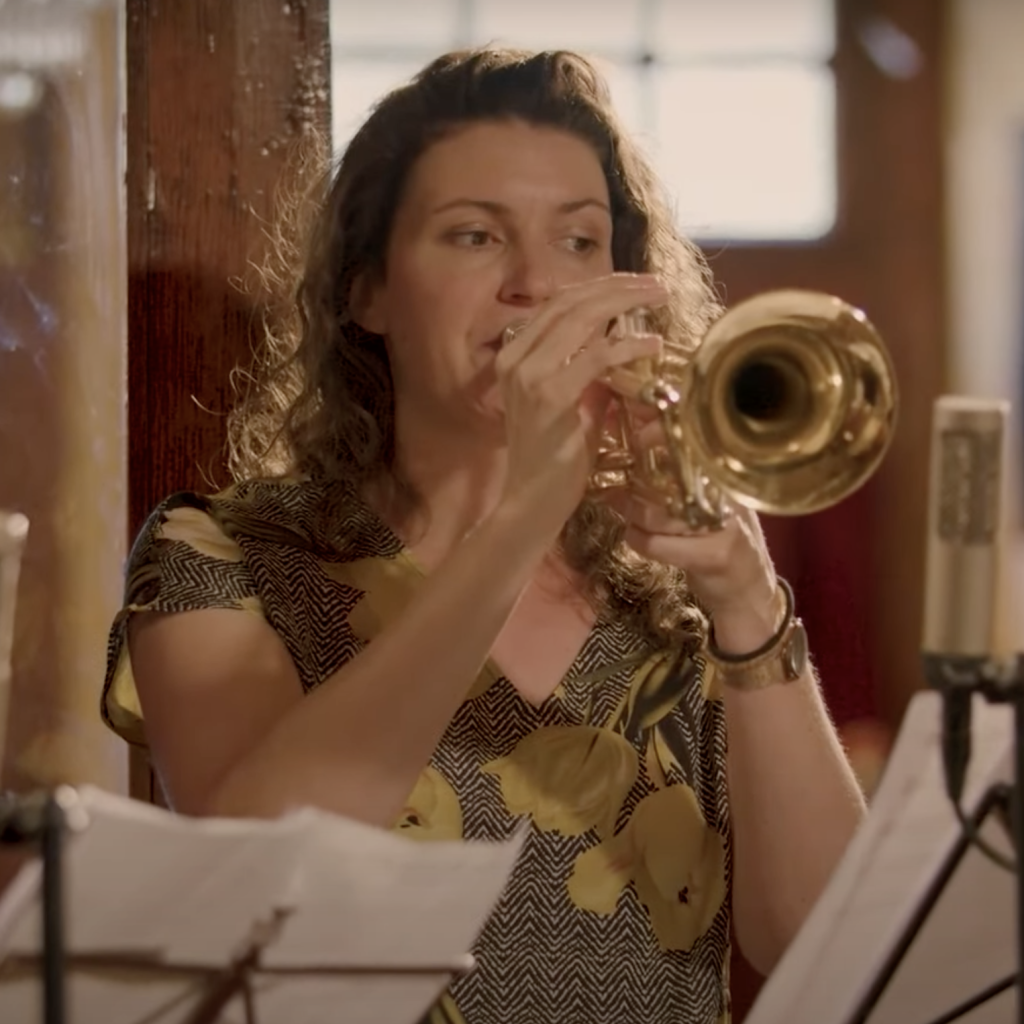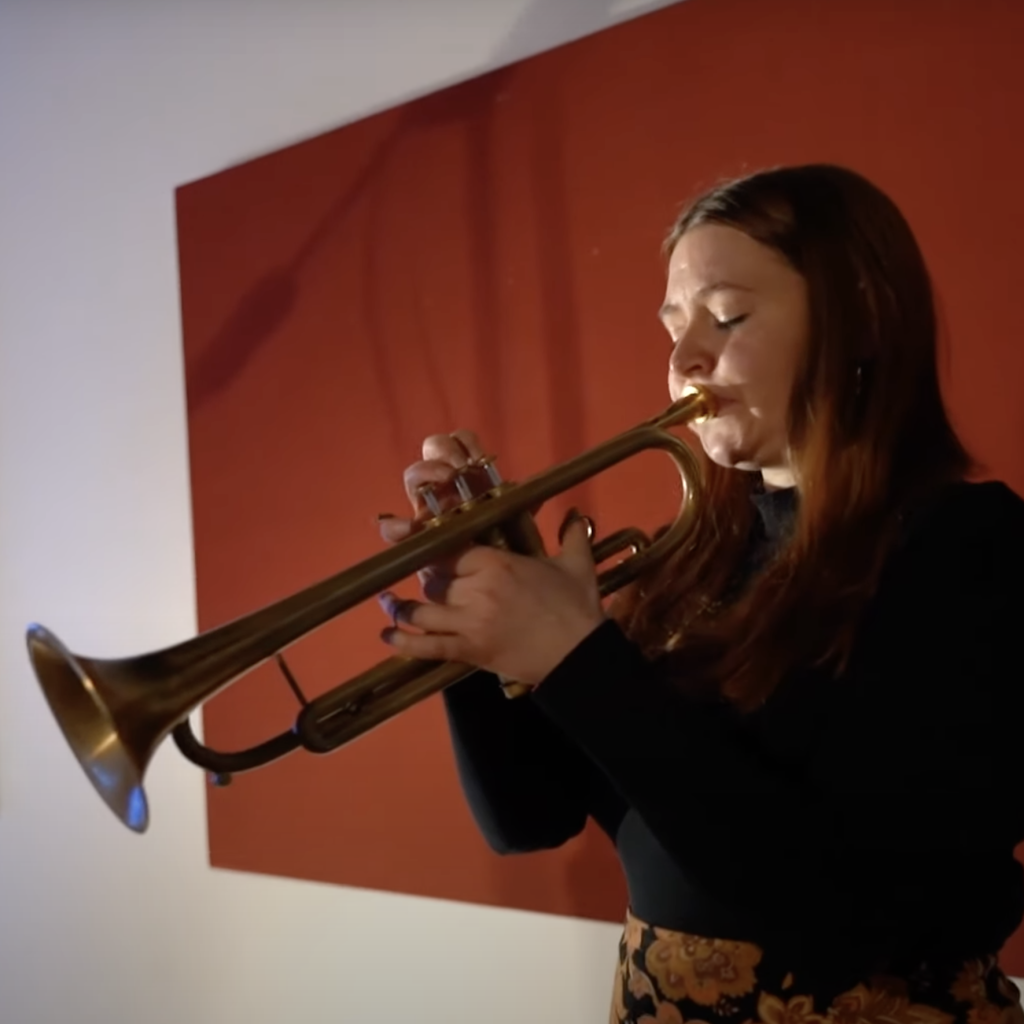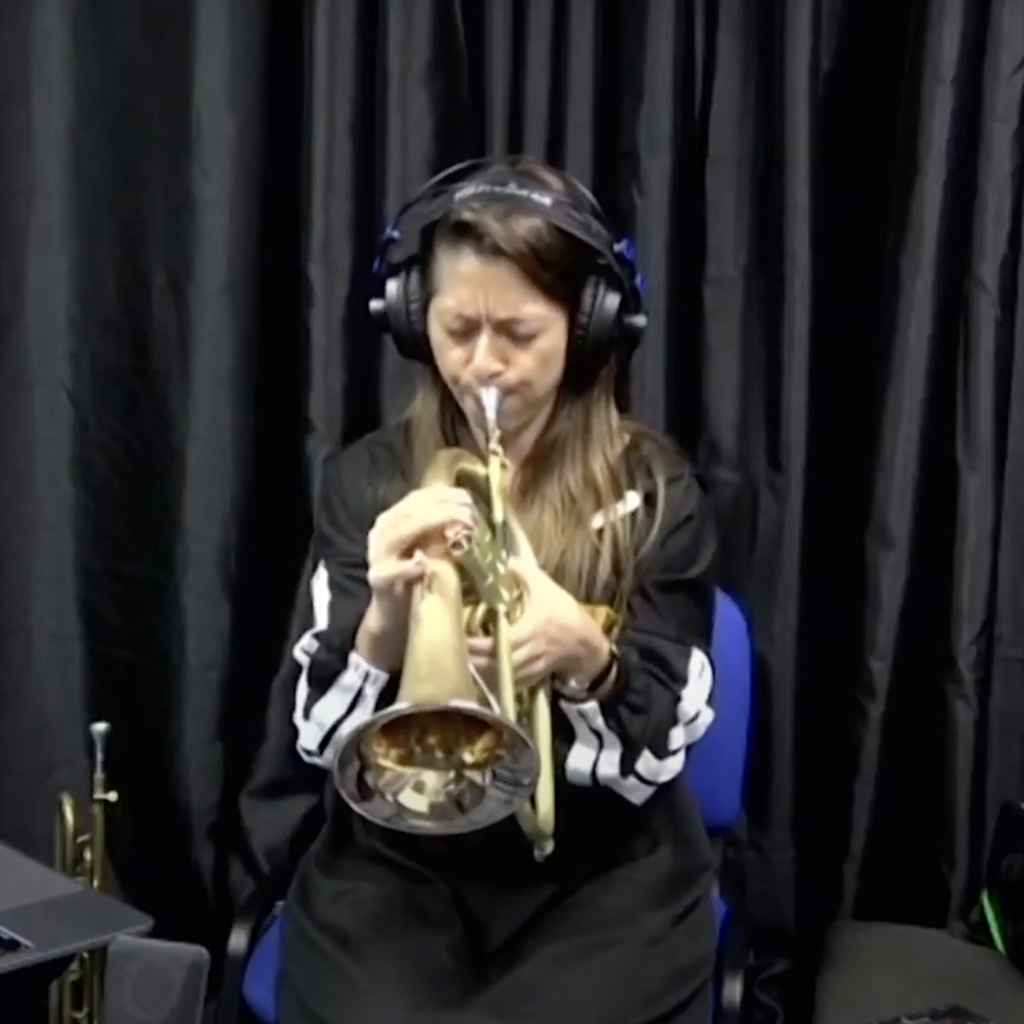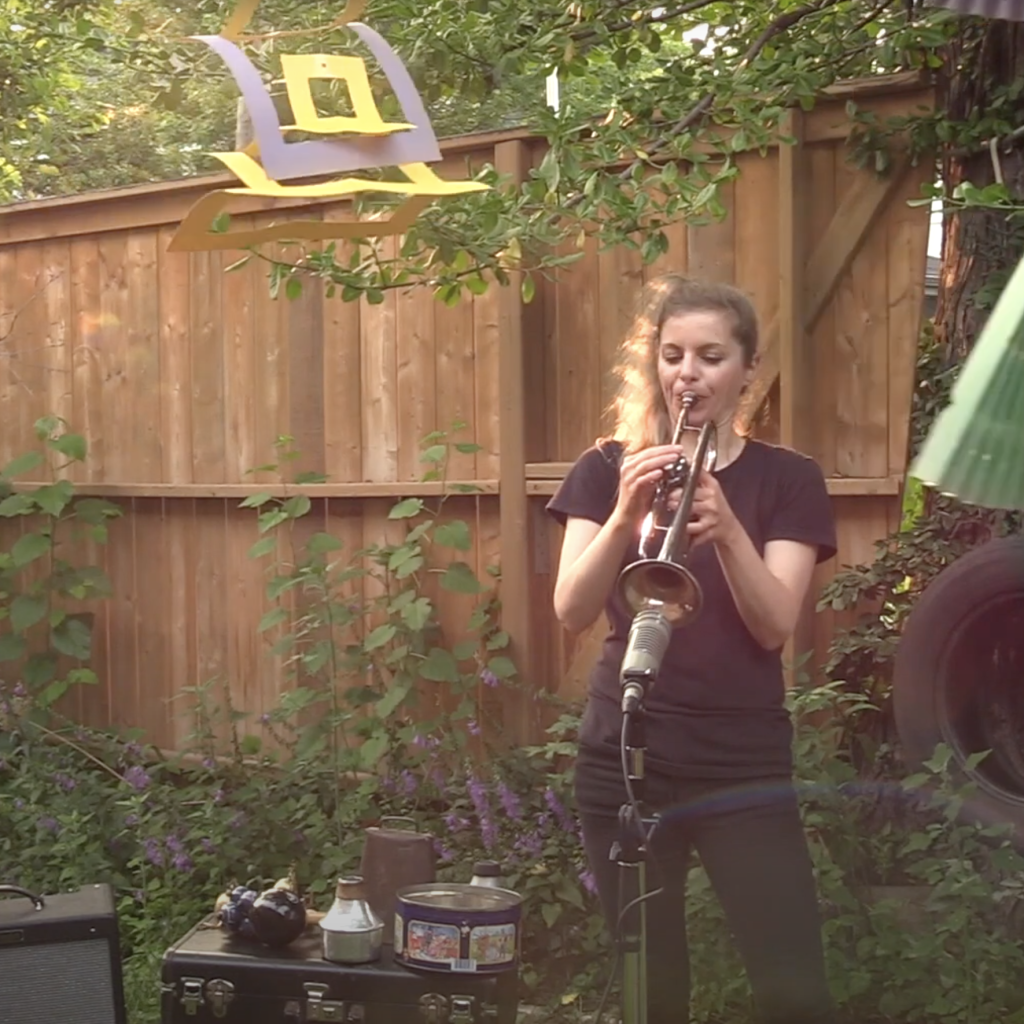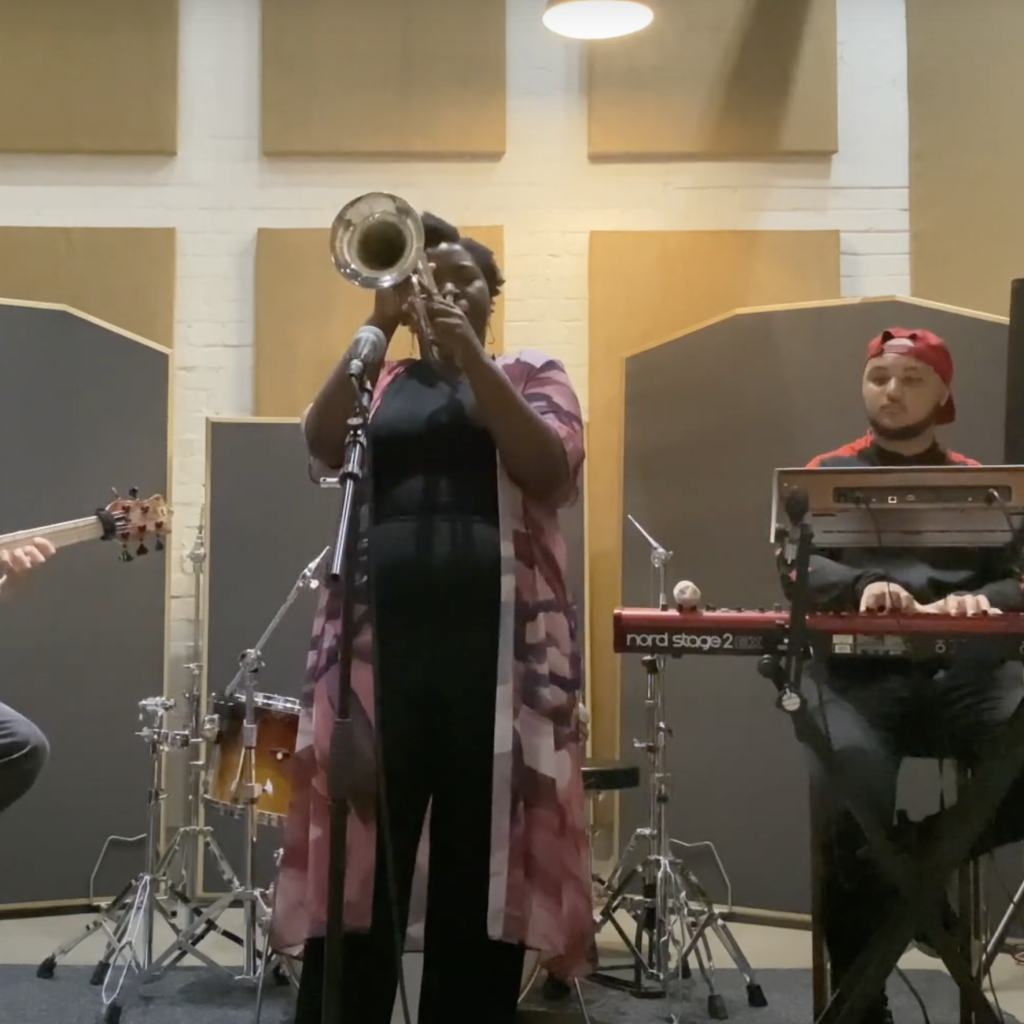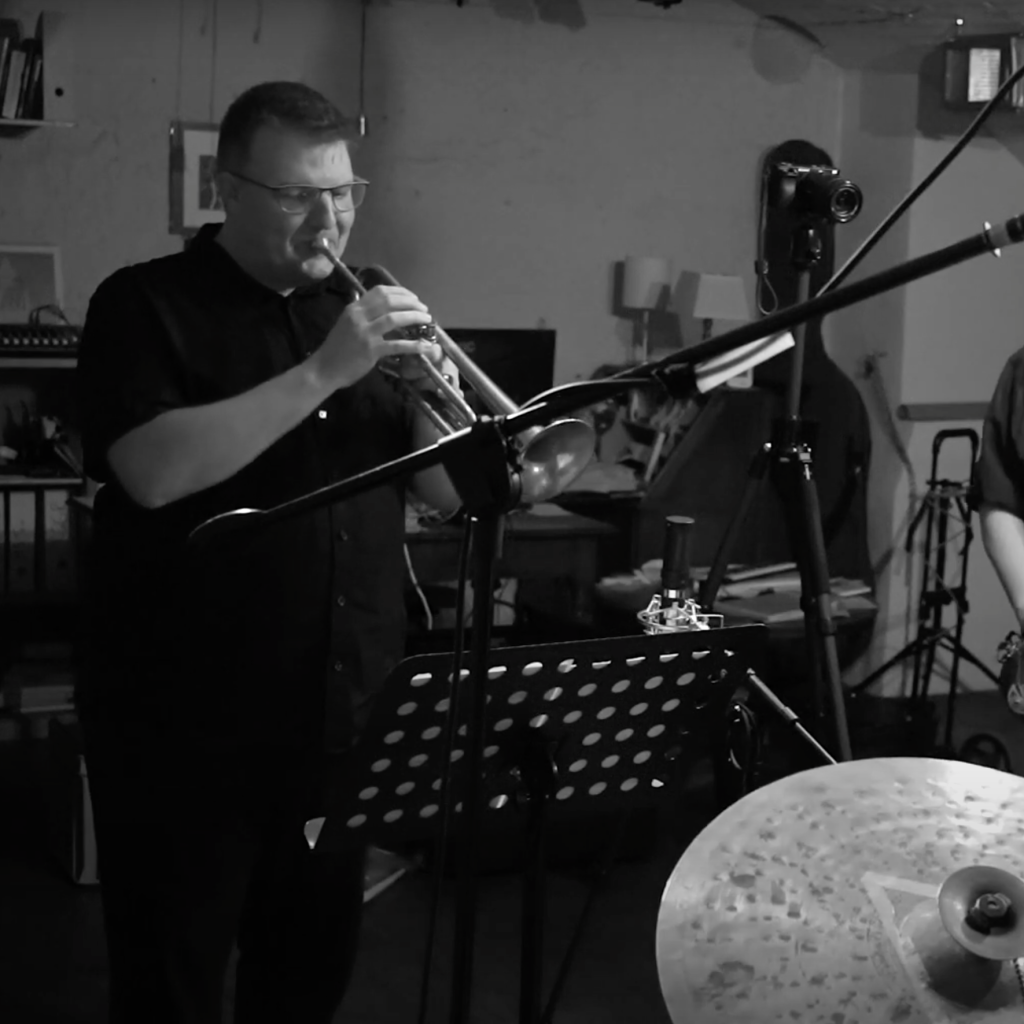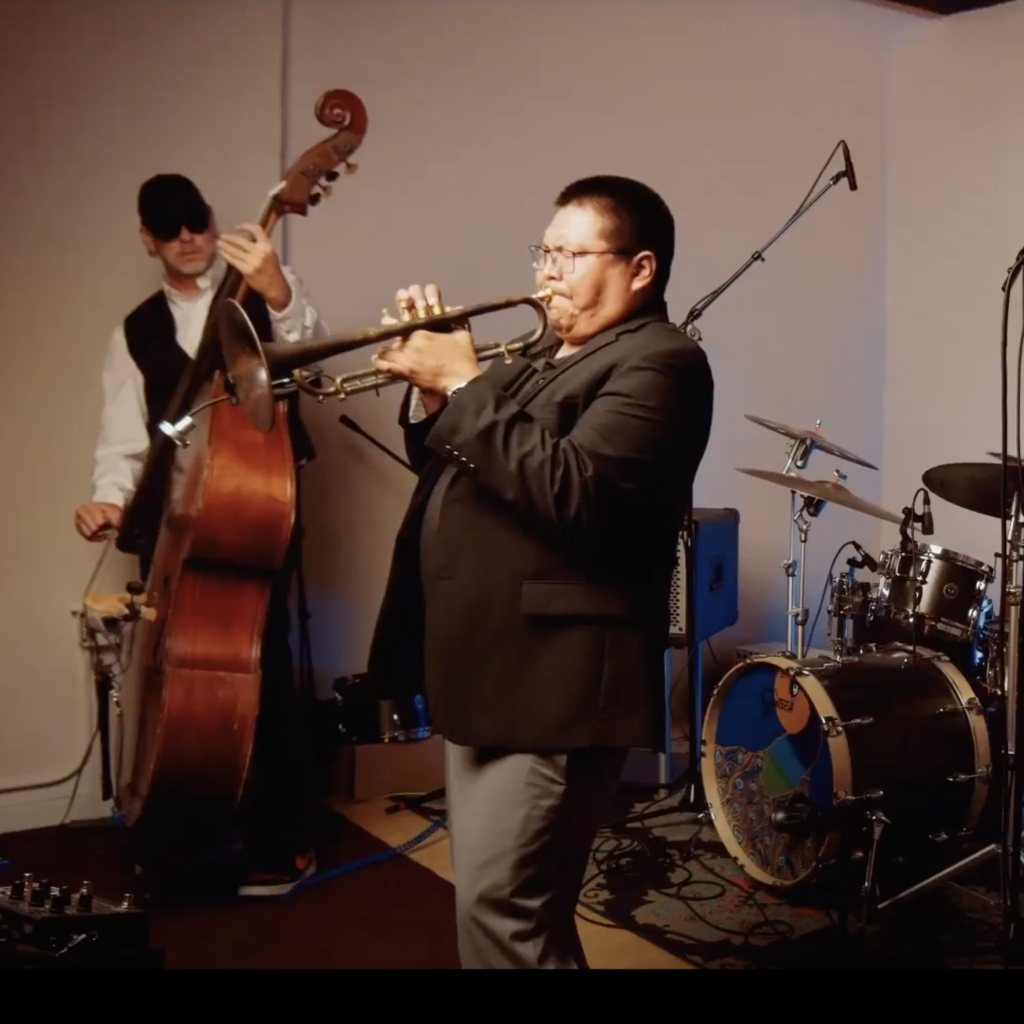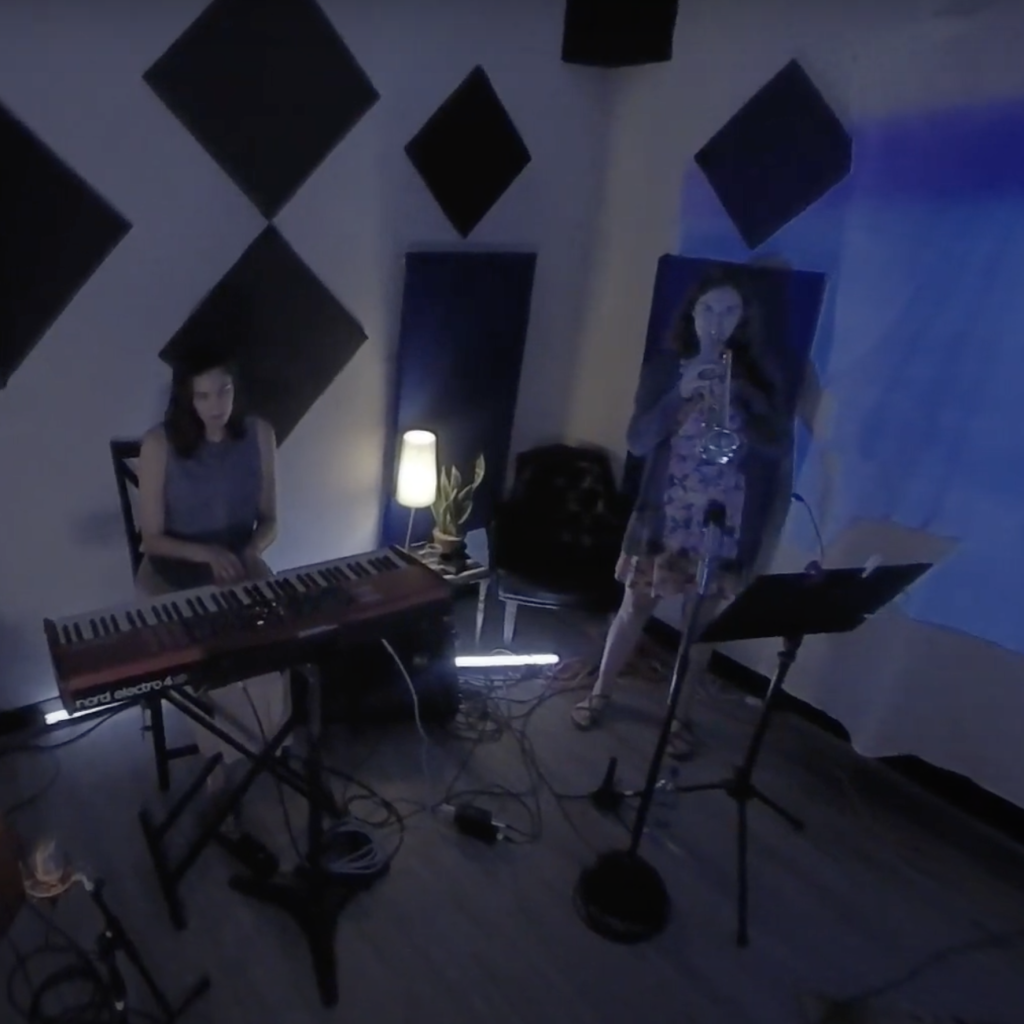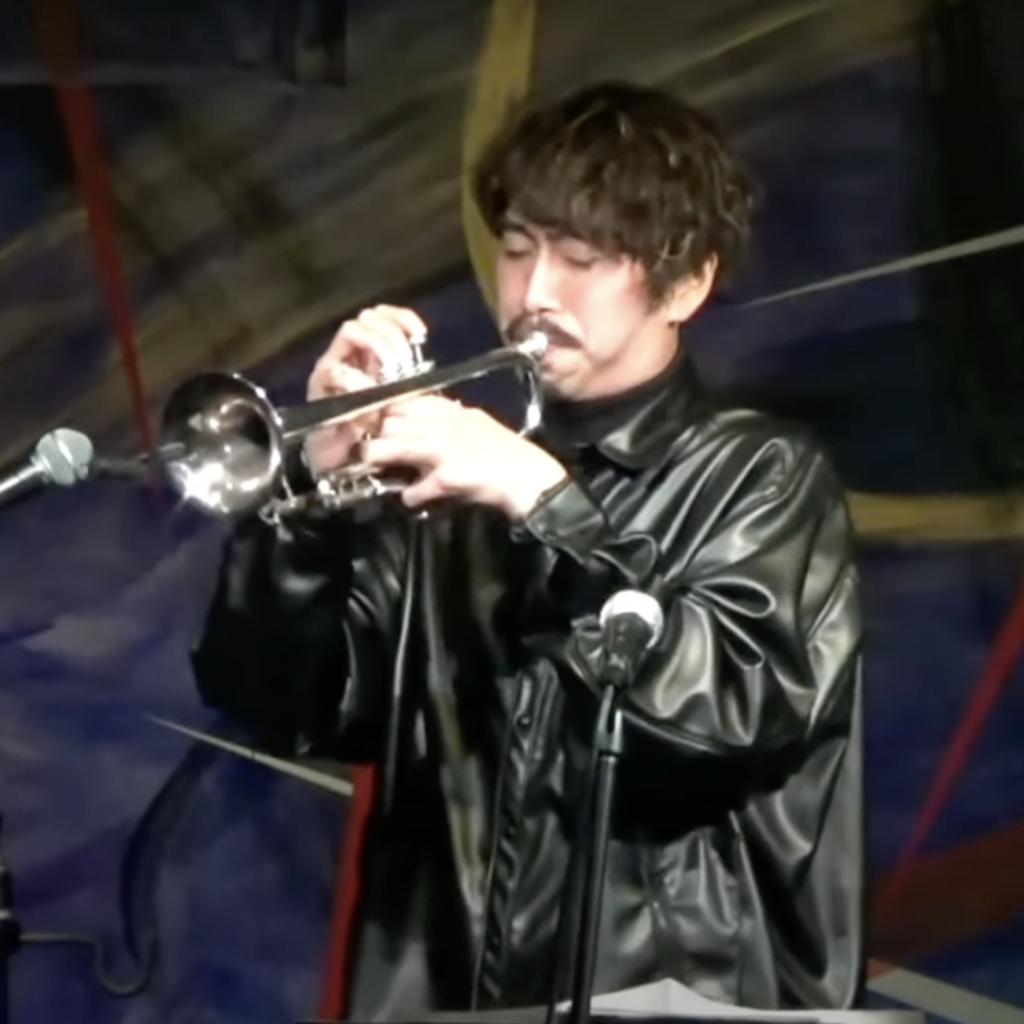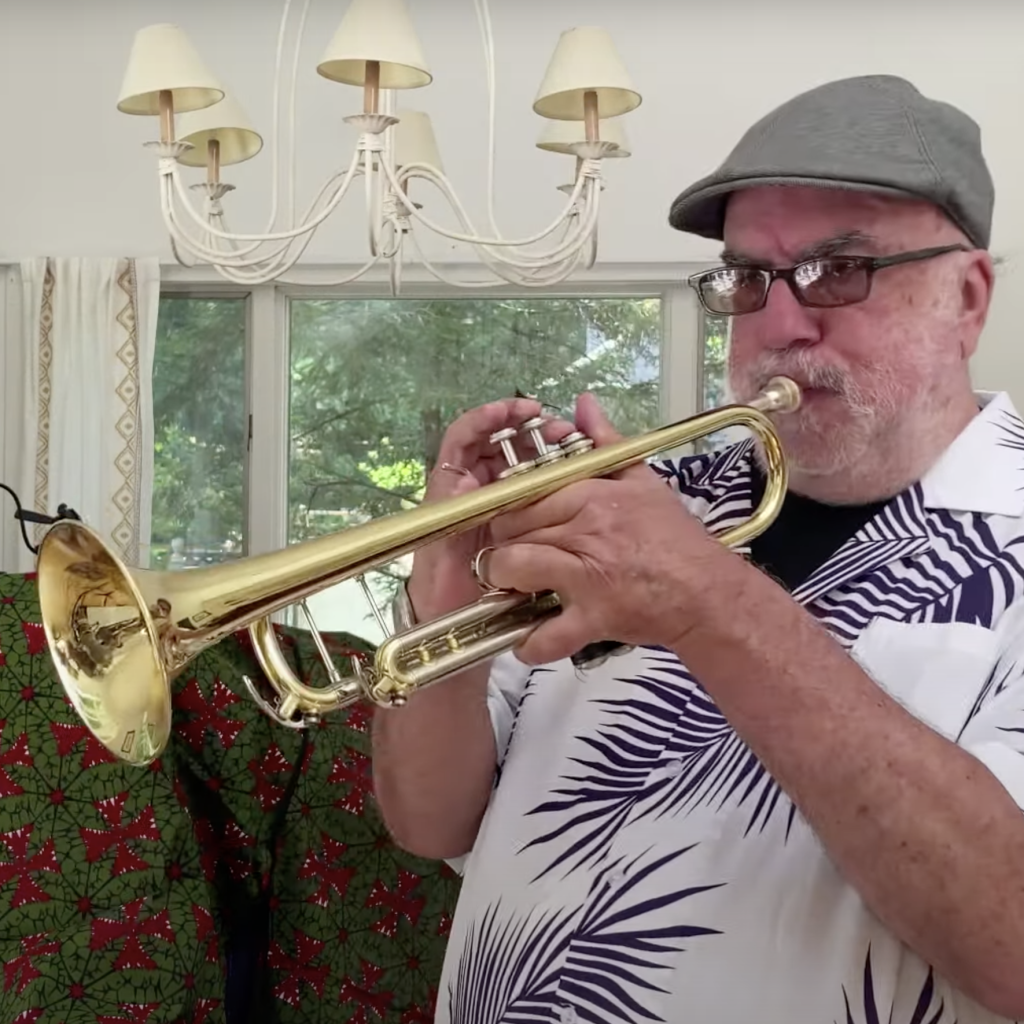As our 2021 festival rolled out on line – with performers from 15 countries, from all sorts of lineages and traditions – we began to see commentary on Facebook from our longtime supporter and board member Erol Tamerman. Nightly missives remarking on the qualities of the work, how it enhances modern trumpet music and how it expresses individual artistic vision. I loved reading these, usually the mornings after the premieres. We all decided we wanted to share them with you as you have the ability to see all the shows in our archive. Enjoy!
— Dave Douglas, Director, Festival of New Trumpet Music
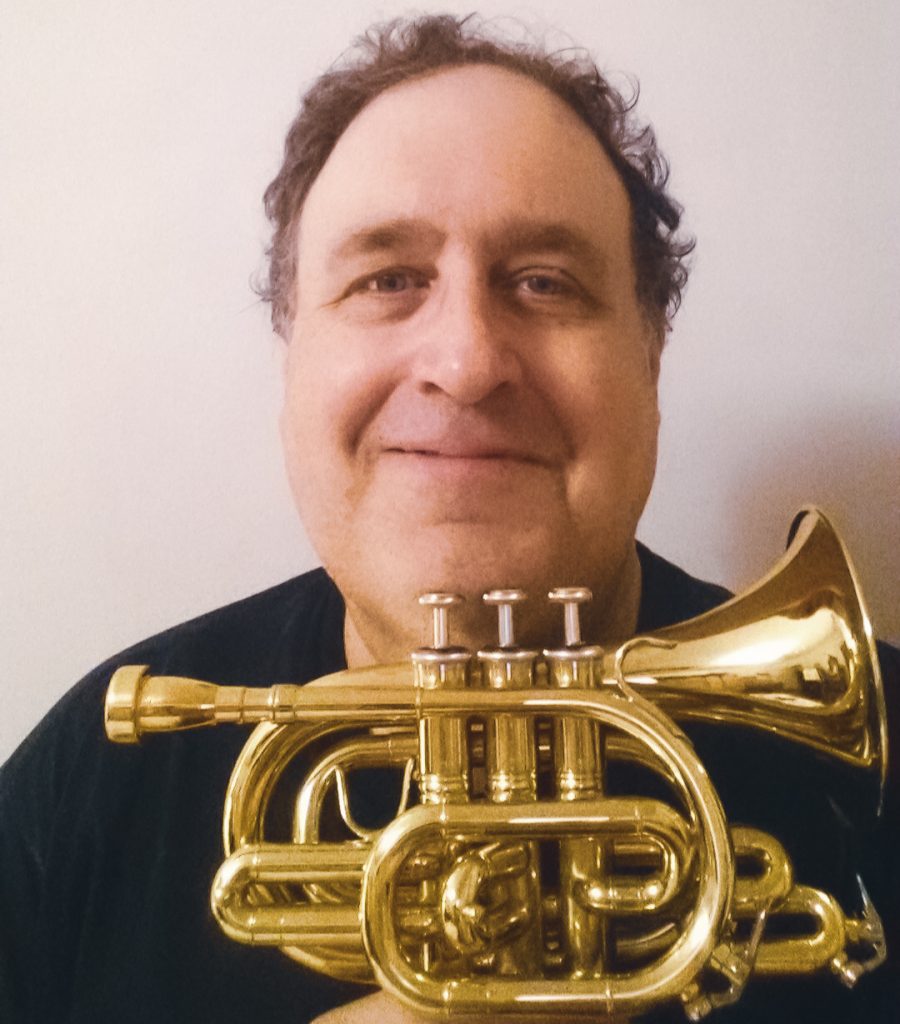
The 2021 edition of the Festival of New Trumpet Music was unique for a number of reasons. As was the case last year, the pandemic forced FONT to change the format of the festival from live events, to pre-recorded, filmed performances. But since in the production of this year’s festival, the considerable cost of bringing internationally based artists to NY was not an issue, FONT had a novel opportunity to provide a platform for a variety of musicians from around the globe. In addition, there was an intentional balance of female and male performers. What resulted was a very rich, wide-ranging program, of wildly original artists and performances, with each night offering something unique and exciting. As I watched the first night of the festival, it became clear that the one ingredient of a live performance which could not be replaced was the immediate participation and response of a live, present audience. I decided then, to respond in words, to each of the performers, discussing how their work affected me, and what it was I saw and heard. My responses were as varied as the performances themselves. But in each case, I attempted to describe personally, my feelings and thoughts about what each artist had presented, in hopes that it might have meaning for them. These thoughts and observations are by no means thorough or authoritative, but they may provide you with some point of reference as you watch these amazing, filmed performances.
— Erol Tamerman, FONT Advisory Board Member
Hermon Mehari – France
Thank you for your performance. I was struck by your notion of playing a dreamscape, as a response to music you heard in dreams, because I cannot remember ever hearing music in my dreams. But, it may be, that in the dream experience, sound and image merge into a composite of the familiar and the unfamiliar, communicating that which when seen, felt or heard in our “awake state”, we miss entirely, or see and then forget. I hear many elements of what one might call traditions of music, played by the trumpet, be they, melodic lines, breathy attacks, repeated motifs, and sounds, occurring in unexpected ways, and at unexpected times. It reminds me of how sometimes when dreaming, I experience myself trying to place some kind of order or logic to the dream flow, and it feels like swimming upstream. The dream has its own unique life, and it will not be weighed down by expectation. Your music has that integrity of the dream, conveying beauty, but also its own logic. I may be wrong, but I understood the speaker to be James Baldwin, but if it is not, that is okay, for as with any dream, the recognition of Baldwin may be what I needed. The vividness of the orange doorway, reminded me that the color orange represents simplicity and spirituality in the Buddhist tradition, and somehow, I feel that the orange doorway, visually represents the entrance to a dream. In one of the many of the ways of interpreting dreams, it is suggested that everything in your dream is “you”. To possess the ability to distill those aspects of self into music is a truly special gift. Thank you for your lithe and supple playing around the groove.
Axel Dörner – Germany
Axel, as I watched your “Scheinbar”, I thought about “seeming”, as each urban image sped by, briefly punctuated by an idyllic silence, all joined by but not conjoined to the spread of sonic information. I could not be sure my familiarity of each individual sound, because they did not seem to come from a place I might have expected. The uncertainty continued, after you first appear in frame, and with each subsequent change of scene. Seeming is a byproduct of expectation, or rather, the desire to have our expectation rewarded. To see beyond seeming, to understand, as Hamlet does when he says,” Not seems, IS!”, requires courage, because seeing, and hearing that which is, challenges what we think we know. I thought I recognized the sounds that appear early in the film as every day sounds, but I could not place them. Instead, you appear, the composer of the sounds, and I was reminded that the soundtrack to our lives is not melody as we have come to understand melody, but rather, the multitude of sounds we hear every day. Take any one of those sounds and stand it alone, pay attention to its attributes, and one realizes how very little we know about melody, or music. There is an inherent beauty in making music from the sounds of our actual life, which accompanies us as we walk through each moment, and that we are mostly oblivious to. When the steel door appears near the end, I experienced it’s intrusion on the bucolic forest as both comic and horrible. That door is the prison of seeming, and when we pass through that door, we no longer are able to see the forest from the trees. Thank you for your compositional insistence on what is, with each image, and within each of your “songs”.
Balkan Paradise Orchestra – Spain
Alba Careta (tp), Berta Gala (tp), Mila González (tp), Eva Garín (cl), Laura Lacueva (cl), Alba Ramírez (frh), Maria Cofan (tb), Maria Puertas (tuba), Olivia Casas (tuba), Eli Fàbregas (perc), Núria Perich (dr)
Miles Davis once famously objected to musicians simply standing stock still, in front of a microphone, referring to it as “some boring shit!” Well, one might take issue with Miles on that one, but FOR SURE, there is nothing static about Balkan Paradise Orchestra! With the precision and verve of James Brown and his band, BPO swings hard and joyously, in a performance that moves and is very moving. For there is much of the past in this music, as there is the exciting present. I can imagine some long bygone musician, listening in from their version of heaven, having a hell of a good time hearing where these talented women have taken tradition!
Kalí Rodríguez-Peña – USA/Cuba
Kalí Rodríguez-Peña (tp), Kazemde George (ts), Gabriel Chakarji (p), Hamish Smith (b), Zack O’Farrill (dr)
Kali, I enjoyed your take on Yes or No, which I think is one of the most difficult tunes to cover, as the original is so indelible. But that is what makes jazz very much in line with the “folk process”, which is to take a tune, filter through different performance sensibilities, to come out with something uniquely one’s own. It is thrilling to see and hear you and your group performing within the tradition of Cuban Music and Jazz and continuing to surprise and enlighten us. Your brilliant tune, A Student is Not a Disciple bares an apt title, particularly for this festival, for it is only natural that we acknowledge and borrow from that which inspires us, but also be free to take those roots to and make something that is our own. That freedom is abundantly on display in your performance, which shifts in direction and tone in very intriguing ways. The rapport you and your band mates share is also in evidence, particularly between you and Kazemde George. Thank you so much for your vibrant performance.
Gunhild Seim – Norway
Chattermark – Gunhild Seim (tp), John Lilja (b), Signe Christine Urdal (video)
Gunhild, from the very first frame of your powerful film, I was catapulted back to what I might call, a primeval imagination. You lead us to a forest bathed in grayscale, a forest in which the light strains to reveal faces in bark, while floating ghost clouds, move too quickly to bother giving testimony. It is the forest of memory, the fern laden forest from which we first came, and abandoned, to walk along the constructs of city corridors. Have we forgotten the music of the forest, and thus, forgotten who we were? Who, then is left to tend to the forest of memory? Every sound, every note we hear, which seem to make the wind rise, the leaves shake, the dust rise and fall to the forest floor, comes from you. You are our guide, the one who shouts in our ear to come back and breathe the ancient musty air, and listen to that music that once guided our ancient lives. Beneath the towering canopy, you stoically sound a trumpet, and it’s music celebrates the cycles of decay and rebirth, summons forest spirits, chides us for our trespass, that which is commemorated in the rotted out hulks of former houses, built as testimony to preeminence of human enterprise, now all but totally forgotten, enveloped and absorbed into the eternal forest.
The moment near the end, that you face us, was truly shattering, for I was reminded that even in the primeval imagination; women have been shunned for having power and speaking ageless truths. Your penetrating, patient gaze recalls the archetype of the forest hermit, who has waited in solitude for so long, that her hair has become moss, her skin bark. Today, I am hearing your music, and its call to return to the moment when all things are possible, if we only joined in the singing. Thank you so much for this wonderful work!
Milena Casado – Spain/USA
Milena Casado (flh/comp), Dani Pérez (g), Manel Fortiá (b), Ramon Prats (dr)
Melina, the austere luster of the opening tune, growing and shimmering with the waves of rubato, was enormously moving and beautiful. Though your work explores the notion of finding courage for self expression in the face of fear, your music belies fear, and grows in confidence, power and swing with each note. The journey to acceptance and mastery, is a tightrope walk, and the risk of falling makes each discovery of our ability, that much more exhilarating. Your last song is a love letter, in which you assure us that your journey continues to be a fruitful one, as your music evidences your enormous gifts as a player, composer and leader. Thank you for your performance.
Birgit Ulher – Germany
Birgit Ulher (concept, trumpet, radio, speaker, objects)
Birgit, for me there is a direct element of theater in your piece. You are situated on a path, under a bridge, on the edge of a stream or water way. Intermittently, you play different qualities of tone and pitch from your cornet, while looking, seeing who or what might next appear. It is as if you the interlocutor, speaking to the reverberant air, are waiting for or even calling to someone or something to arrive and it is never completely clear if those persons who walk, bicycle or kayak past you, are the ones you expect. Intervals of time pass, through which you augment your playing with different textures, pitches, and particular strategies of placement, and the sequences of sound seem to be affected by the sequence of wayfarers who happen upon you. These moments of waiting, of discourse, and of discovery are uniquely qualified by every statement in sound you make, in concert with those who enter into view, producing a kind of thematic, if not narrative course. I particularly like the moment when you yourself, stop playing, and become a traveler. It has a feeling reminiscent of Samuel Beckett’s works, though not necessarily “Godot”. You and your cornet are, as is Axel Dörner in his Scheinbar, exactly where you need to be, and there is nothing odd, or out of place about communicating through sound or music anywhere, and at anytime. Thank you for your fascinating film.
Richard Nant – Argentina
Richard Nant New Quintet – Richard Nant (tp/perc/comp), Ricardo Cavali (ts), Alvaro Torres (p), Matias Mendez (eb), Sergio Verdinelli (dr)
Richard, your suite “Ghost of the Truth” is so alive with shifting rhythm and harmony. I remember once during a break in performance, Maria Schneider talked about being in South America, witnessing young children dancing to and clapping complex rhythmic patterns with remarkable ease. Of course, these are the rhythms that have accompanied them since birth, so naturally embodying them was as easy as breathing. But after Maria tried to have the audience clap the rhythm, it was clear that it was anything but easy. During your performance, I kept hearing many gradual shifts of meter, and I decided it was better to feel them then to try and count them. Your music dances so hard and with such intensity, and your thematic material, switching from soft and ethereal to loud and skipping, really packs a wallop. If memory is the ghost of an experience, then the truth of your music still haunts me, even as I write these words. Thanks to you and your group for your music.
Sarah Wilson – USA
Sarah Wilson (tp/voc), Charles Burnham (vl), John Schott (g), Myra Melford (p), Jerome Harris (b), Matt Wilson (dr)
Sarah, thank you so much for your powerful, elegiac set of music. I had once read an interview you gave, where you described your journey as an artist, and I relate very strongly to your story. I too have come, gone and returned to playing trumpet and creating music, while working in other areas, and performing in other forums. It is the folly of human nature, to describe our journey through life as a straight line, rather than as the shifting stop and starts that truly represent where we have been and where we are going. It is clear in your music, that your life journey has provided you with a gift to translate your experiences into song. Your voice as a player and composer is unique, and it is wonderful to witness this empathetic group musicians joining with you to communicate such beauty. A number of times, I could almost see Peter Schumann’s giant puppet figures and masked human performers march by within the flights of your solos and high flying melodies. Also, thank you for your tremendously moving, Young Woman.
Verneri Pohjola – Finland
Verneri Pohjola (tp), Mika Kallio (dr)
Thank you Verneri for your meditations of grace in all reaches of sound. Your inspired playing and compositional landscape, remind me of the different traditions of chanting in a sacred space. Of course, chant is a sonic and spatial celebration of the nameless Divine, transmitted in sound and focused to ascend and billow out beyond our making and hearing of it. In the Tibetan Tantric Chant Tradition, a long horn is used to call the monks to prayer, or to observe mourning. But it is also a common sound, and it serves to join the sacred to the day-to-day experience. Your horn and your entire sonic stratum, reveal the sacred, which resides in every vibration, and is carried on every breath and heartbeat. Thank you.
Suzan Veneman – Netherlands
Suzan Veneman (tp/flh), Alvaro Artime Jimenez (tp/flh), Gidon Nunes Vaz (tp/flh), Kurt Weiss (tp/flh), Tijs Klaassen (b), Wouter Kühne (dr)
Suzan, four trumpets and rhythm is a winning hand, every time! I love all the colors and textures you coax in your compositions, and how wonderful too, that you and your brass comrades achieve such an amazing blend. Who needs reeds? Thank you for creating fresh music that breathes innovation and tradition at the same time. The bluesy section made me smile, and think of Thad Jones!
Audrey Powne – Australia
Audrey Powne (tp), James Bowers (keys), Myka Wallace (dr)
Audrey, thank you for your, sensitive, supple and grooving music. The transition from despair to joy in your pieces is marked profoundly through your rich tone, and vivid ideas. I love how you build and soar so strongly upon the motifs you’ve set down. Again, thank you and your group for your inspired performance.
Oddly enough, while watching you play, I was reminded of when I was in high school, and was asked by adult parents at my church, to give trumpet lessons to their elementary school aged son. It turned out, that it was his twin sister who wanted to learn trumpet, but their parents didn’t think the trumpet was “Lady-like”. (ugh!) So I ended up teaching both of them, and then after awhile, only the young girl. I even loaned her my old Bundy trumpet to practice on. One day, I found the trumpet case on my porch, with a note that said their son wasn’t interested in lessons anymore. No mention of their daughter. So now, years later, I rejoice when I see gifted women like you, playing so much great music on the trumpet.
Yazz Ahmed – UK (Master Class)
Yazz Ahmed, I just had the chance, finally, to view the broadcast of your master class, and your music and discussion are tremendously meaningful to me on many levels. I so enjoyed your compositions and your rich, soulful playing. You have such a gorgeous sound, and your “touch” on both the flugelhorn and the trumpet, is both delicate and powerful. Hearing to you describe your musical development, particularly, how Bahraini music has influenced you, is inspirational. My father was Turkish, and it was he, who first introduced me to Jazz. On his part though, there never seemed to be much interest in the music of Turkey, which of course, covers a lot of different ground. I have, over time, ventured out on my own to explore the various tributaries of different traditions of Turkish music, and it has enriched my life immeasurably. I was struck by how the processed trumpet accompaniment on your first tune, managed to convey the textures of “modern” electronic music, as well as the other worldly quality of traditional ethnic instruments. I would be interested in seeing the four rhythmic patterns you described, notated.
You mentioned Kenny Wheeler, who is such a looming figure in music, even after his passing. It has been interesting to note how his influence has shaped the compositions and playing of many artists who have appeared in this year’s festival. Your music, like Kenny’s, is gorgeous, shimmering and uniquely your own.
I enjoyed hearing you describe the various ways you explore the electronic tools you use, as well your compositional and trumpet practice. Your reminder that simplicity is the key when trying to create was something I was very much in need of being reminded of. Often, when trying to write, I become overwhelmed by the enormity of what can be done, so that I tend to give in and shut down. How amazing it is that you often mine material for your beautiful, complex music, with a simple exploration of sound and scales against the sound of the drone box. Thank you for your wonderful music, and for sharing with us, your thoughts and stories about your life and work.
Lina Allemano – Canada
BLOOP – Lina Allemano (tp), Mike Smith (live-processing/effects)
Lina, thank you, for your inspired creation. I am always aware of the “tension” that seems to exist between acoustic and “processed” sound. I say tension, because each one of these methods of creating music expresses that which the other cannot, and therefore, each element “vies” for the listener’s attention. Before electricity, there was only the acoustic, and that defined the music and the age. Now, this age is defined by an amalgam of acoustic and electronic, and when produced in tandem, we have the opportunity to experience how the real time effect of this duality plays out. It must be compelling, and perhaps a bit confronting to hear the trajectory of sound you physically produce, returning to you in its digital form; it is as if you have become two players. The presence of Mike Smith, reforming the sonic information and creating effects digitally, further illustrates these two unique worlds of music and sound making. The payoff is in what you play, what you create with your material, and that creation blossoms and flourishes. The floating chime sculptures seem to act like a kind of musical notation, that move and change with each sound passage you play.
Sheila Maurice-Grey – UK
Sheila Maurice-Grey (flh), Renato Paris (keys), Arthur O’Hara (b)
Sheila, I love the flugelhorn, cousin to the trumpet, and your unique voice, is a vivid demonstration of the lustrous sound one can achieve, playing it. Perhaps, it is for you as your tune’s title suggests, “I Can’t Always Have It My Way”, but the groove you and your group achieve playing, suggests otherwise! I know the version of “People Make the World Go Round” that you mentioned. I think Freddie would have smiled hearing your brilliant, sensuous rendition. Thanks to you and your group for your wonderful performance!
Lukas Frei – Switzerland
Lukas Frei (tp), Simon Spiess (ts), Jeremias Keller (b), Fred Bürki (dr)
Lukas, you get such a glittering, beautiful sound in your playing. I love the lithe, running melodic lines in the tunes and in all of the solos, carried along by the delicate churn of the rhythm. I kept hearing, within all the tunes, the expression of quiet and elegiac yearning. It is, for me, a reminder that it is still yet possible to discover beauty, even in this ugly beautiful world, to paraphrase Monk! Thank you to you and your group, for providing us with the swinging solace of beauty, in your exquisite performance.
Delbert Anderson feat. DDAT – USA
Delbert Anderson (tp), James Pakootas (voc), Mike McCluhan (b), Nicholas Lucero (dr)
Delbert, as I listened to you, I was reminded of Jim Pepper, if only because you have both, joined your very personal expressions of Native American tradition, with the language of Jazz and Improvised Music, into something very special. Listening to James Pakootas rapping on your tune, struck me as modern, but also functioned in the manner that certain traditions of Native American chanting might. Moreover, I have never heard anyone employ half valve technique, to achieve such haunting speech. In concert with the drum and bass pulse, the effect literally sent chills through me, and it was incredibly moving. The sound you get on the trumpet, both during moments of “inside” and “outside” playing, is so rich, and at times, parlando, that I hear you actually “singing” through your horn. Thanks to you and your ensembles, for sharing your intensely beautiful music.
Adam Cuthbert – USA
Adam Cuthbert (tp/electr)
Adam, thank you so much for your set of music. The experience I had, as you played the opening, outdoor section, was that of sitting in the middle of a large sanctuary, while hearing enormous, ecstatic currents of music from a large church pipe organ, buoyed by the inherent time delay that slows the sound’s decay, long enough for it to ripple like waves. That you can achieve something like that by using trumpet and effects, is truly a marvel. Once you were indoors, the sonic wash was both soothing and invigorating, the way it is when you feel the strength of the sun, warm on your skin, after days of clouds. I was captivated by Tuna The Cat’s face, as I was by the talismans of gaming dice and figures, and the other cat figure, which I feel as though should know, but don’t. I can’t say exactly how, but I feel the presence of those things, was, at least for me, integral to the full expression of the second, indoor section. But then, the trumpet is, itself, a talisman, because it is the agent that makes all else possible.
Emily Kuhn – USA
Emily Kuhn (tp), Ben Cruz (g), Meghan Stagl (p), Kitt Lyles (b), Gustavo Cortiñas (dr)
Emily, there has always been talk about how Jazz, “stopped being dance music”, but I can tell you, your opening waltz, flowed with such silken delicacy and insistence, that I could have very easily danced to it with my wife, if only we had the floor space! What a lovely, amazing tune. Your playing is so supple and dance like. Your writing is sonorous and beautiful, unfurling in surprising ways, with full, delicious harmony! It is such a gift, to be able to allow the music to blossom, the way you and your collaborators have! Thank you to you and your group, for the luscious garden of sound you played for us tonight!
Mary Elizabeth Bowden – USA
Mary Elizabeth Bowden (tp), Bora Ryu (p), Reena Esmail (comp), Vivian Fung (comp), Alexandra Pakhmutova (comp)
Mary, thank you so very much, for your opening portion of this evening’s FONT program. All the aspects of your playing, your mastery of the instrument, your power, delicacy and ravishing tone, are astounding. As a trumpet player myself, I felt my chops fall to the floor, as I listened in awe to your performance! The three pieces you played, for me, seem to form an emblematic tripych, each informed by the western settings in which you play them. Minature, majestically captures in music and image, the overpowering beauty of the landscape, evoking feelings of what it must have been like, to first step foot upon those rocky crags. Aperitif, has you in a modern, bright southwestern palette of color and fluorescence, as you venture through an electrifying, contemporary trajectory of phrasing and melody. Finally, Alexandra Pakhmutova’s Concerto, performed within the wonderful Victorian theater backdrop, has the optimism and vibrancy of what we mean when we say, “Americana”, in the most positive and romantic sense of the word. There are delicate moments, which burst suddenly, into bold flares. It is a marvelous end piece, and you and your collaborator play as though one instrument. Thank you for your remarkable performance.
Mao Soné – Japan
Mao Soné (tp), David Bryant (p)
Mao Soné, this year’s festival has demonstrated that the trumpet can soar past the limitations it is supposedly bounded by. Your playing is an exquisite example of this truth. Music of such expansiveness and emotion as yours, demands a technique that is beyond technique, and imagination that eclipses what we might expect from the trumpet. It is rewarding to witness the rapport you share with pianist, David Bryant, so much more than simply soloist and accompanist. At times, you evoke the memory of Kenny Wheeler and John Taylor together, while fully committed to your own concept, sound and originality. Thank you for your powerful set of music.
Award of Recognition
Randy Brecker – USA
Randy Brecker (tp), Ada Rovatti (ss), Gil Goldstein (p)
Randy, congratulations for your Festival of New Trumpet Music Award of Recognition! And thanks to you, and to Gil Goldstein and Ada Rovatti, for your set of great music! This evening, many folks have either spoken or written to praise your rich artistic legacy and to personally thank you for your friendship and mentorship. I would like to further amplify upon one particular aspect of your legacy, and that is your marvelous talent for telling stories. I have read numerous interviews you have given, watched talks you have participated in, and in every instance, the stories you share are ripe with humor and wisdom, born from your unique perspective as a witness and participant on the scene for so long. For example, in an interview you gave for JAZZ IMPROV Magazine several years ago, you recounted your formative years in Philadelphia, home to many, many important figures in jazz, spoke of the rigors of touring, praised your mentors, and gave a fascinating account of you and your brother’s involvement in owning and running the club, Seventh Avenue South, …and so much more. Your written and spoken stories are a treasure trove of keenly described details from your life in music, which serve to entertain and educate musicians and non musicians, alike. Thank you for being a gifted raconteur and sage chronicler of music and life lessons! Finally, in that JAZZ IMPROV interview, you provide one of my favorite of your stories, concerning the occasion that Miles Davis came to Seventh Avenue South on a night you were playing. I would not presume to be able to do justice to your telling of that story, but its conclusion does bear repeating, about what Miles said, when he finally spoke to you, in his raspy voice, “Do you love your Wah Wah? I love my Wah Wah!!!!” Thank you, and congratulations, Randy Brecker!
